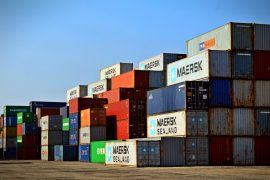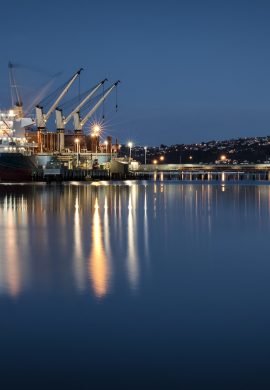Research

Reverse logistics
Reverse logistics stands for all reuse of products and materials associated activities. It is the ...
Read more >>

Network Global Logistics
Do we really need a network global logistics? In a sustainability context, the current global ...
Read more >>

Recycling of ships
The development of the Hong Kong Convention
The Hong Kong International Convention for the Safe and ...
Read more >>
The future of green shipping
IMO GMN project is promoting technologies and operations to improve energy efficiency in maritime sector and help navigate shipping into a low carbon future. It is steering a course for ...
Read more >>
ABOUT SPACE DEBRIS
https://dlmultimedia.esa.int/download/public/videos/2017/11/027/1711_027_AR_EN.mp4
SPACE DEBRIS BY THE NUMBERS
The latest figures related to space debris, provided by ESA's Space Debris Office at ESOC, Darmstadt, Germany.
Information correct as of January 2019
Number of rocket launches since ...
Read more >>
Disruption, digital ecosystems and Porsche in the centre of it all
Disruption, digital ecosystems and Porsche in the centre of it all – Lutz Meschke, Deputy Chairman of the Executive Board of Porsche AG and Member of the Executive Board responsible ...
Read more >>
What is Green Logistics?
A step towards green Logistics
Logistics is the integrated management of all the activities required to move products through the supply chain. For a typical product this supply chain extends from ...
Read more >>
What is the carbon footprint of manufacturing batteries for electric vehicles?
Please help us by answering the questions below? We'd love to hear from you.
What is the carbon footprint of manufacturing batteries for electric vehicles?
Are there other environmental implications?
...
Read more >>
IMO Data Collection System
Data collection system for fuel oil consumption of ships entered into force on 1 March 2018.
Under the amendments, ships of 5,000 gross tonnage and above are required to collect consumption ...
Read more >>
Energy Efficiency Design Index (EEDI)
The EEDI for new ships is the most important technical measure and aims at promoting the use of more energy efficient (less polluting) equipment and engines. The EEDI requires a minimum ...
Read more >>
Reduction of GHG Emissions from Ships
In 2012, international shipping was estimated to have contributed about 2.2% to the global emissions of carbon dioxide (CO2). Although international shipping is the most energy efficient mode of mass ...
Read more >>
Impact of emissions Did you know?
Next to CO2, the transport sectors also emit nitrogen oxides (NOx=NO+NO2), carbon monoxide (CO), and hydrocarbons (HCs) that lead to further perturbations of the atmospheric concentrations of the greenhouse gases ...
Read more >>
Sustainable logistics and supply chain management
Supply chain of the future focuses on analyzing the implications of considering CO2 emissions in logistics decisions. Companies can potentially achieve important reductions in carbon emissions by making better sustainable ...
Read more >>
Values of key climate indicators
Values of key climate indicators
Indicator
Time period
Value
Ranking
Global mean surface-temperature anomaly (1981–2010 baseline)
2017,
annual mean
+0.46°C
Second-highest on record
Global ocean heat content change, 0–700 metre layer
2017,
annual mean
1.581 x 1023 J
Highest on record
Global mean CO2 ...
Read more >>
